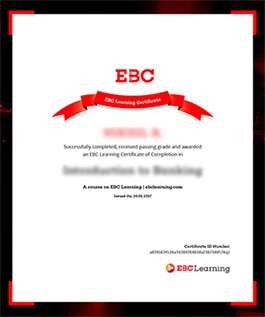EBC Webstore
Eastern Book Company
|
|
 Home > E-LEARN > EBC Learning Courses - Law Course Online > 2020 Home > E-LEARN > EBC Learning Courses - Law Course Online > 2020 |


 4
4
| Effort | 6h 6Video: 4h 36m, Reading: 1h 30m) |
Arbitration has developed as the most powerful and effective tool of alternate dispute resolution. Arbitration is the settlement of disputes by an impartial third party in a cost effective and time efficient manner providing effective legal relief to the disputing parties.
Important concepts in arbitration law, how an arbitration proceeding commences, appointment and dismissal of an arbitrator or an arbitral tribunal, enforcement of an arbitral award and appeal and finally, termination of arbitral proceedings and much more have been discussed in this course. The course covers not only the Arbitration and Conciliation Act, 1996 but also the latest updates and developments pursuant to the 2015 and 2019 amendments.
For law students, the subject of arbitration is intriguing and tricky at the same time. If you take this course as a law student, you will learn the basics of arbitration law and you will also be equipped with an in depth understanding of the procedures and practices relevant to this area of law. This course is your ideal guide for examinations as well as for excelling in placement interviews.
Since this course has been designed and developed to provide guidance on arbitration at each stage of proceedings, if you miss out on this course, you miss out on learning the practical aspects of each stage of arbitration proceedings. If you are a student and have not yet taken this course, you will miss the opportunity of making yourself thorough in the subject of arbitration before taking your examinations. During your placement interview, your future employer may ask questions related to arbitration, and not taking this could make you miss an edge over other prospective candidates.
For lawyers, this course will answer the question of what to do next! This course acts as a practical guide for lawyers and practitioners, and by the end of this course, you will develop a thorough understanding of the fundamentals of arbitration law and you can confidently face challenges in arbitration knowing what issues may arise and how to confront and tackle them with ease.
This is a supplement-rich course comprising flowcharts, case references and formats.

Mallika Taly is an advocate practising in the Bombay High Court for almost a decade. She is a litigator and is frequently involved in arbitration matters. She is also a law academician and has published various books on arbitration with Eastern Book Company.
Complete this course and exercises to earn a certificate. Share it with your friends, colleagues, and employers.*
*You must Subscribe to get a certificate.

1. Introduction
2. Introducing arbitration law
3. The arbitration agreement
4. Invoking arbitration
5. Filing or dealing with objections to arbitration
6. Determining the procedure for arbitration proceedings
7. Determining the arbitral tribunal
8. An arbitrator’s fee
9. Removing or substituting an arbitrator
10. Jurisdiction of arbitral tribunal and courts
11. Proceedings
12. Interim reliefs
13. The arbitral award
14. Enforcement and execution of an arbitral award
15. Termination
16. Appeals and challenges
17. Conclusion
|
|
||
|
||
|